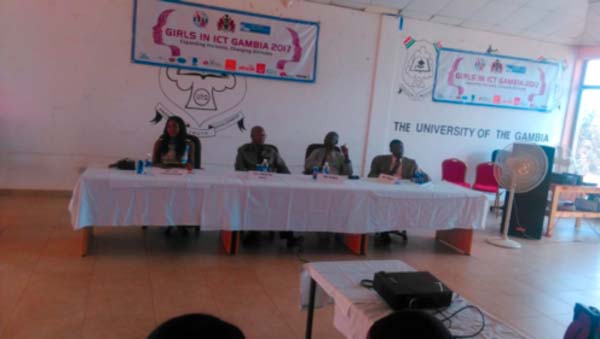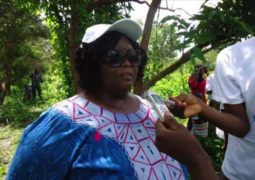
The
Public Utility and Regulatory Authority (PURA), Girls in ICT and the
International Telecommunication Union (ITC) recently celebrated girls at the
University of Law Faculty in Kanifing.
The
International Girls in ICT Day was an initiative backed by the International
Telecommunications Union (ITU). Member states in the ITU aim to create a global
environment that empowers and encourages girls and women to consider careers in
the growing fields of Information Communication Technology (ICT).
Speaking
at the ceremony, the Director General of PURA, Ansumana Sanneh, said ICT has
become an integral and accepted part of everyday life for many people.
“It
is increasing in importance in people’s lives and it is expected that this
trend will continue to the extent that ICT literacy will become a functional
requirement for people’s work, social and personal lives,” he said.
He
said it was a concern to see that not enough schoolgirls are opting to study
technology-related disciplines in many countries worldwide.
He
underscored the significance of ICT as a motivational factor in students’
learning and said it could support students’ engagement with collaborative
learning in specialties.
He
continued saying, PURA, as the sector regulator, would do all it could in order
to contribute its humble quota in promoting the number of girls participating in ICT.
Mr
Sanneh concluded by expressing sincere gratitude to PURA and MOICI. He
expressed his desire that this venture and all its associated programmes would
provide the opportunity for bigger and better things to come in the continued
collaborative drive as a country to achieve gender parity in development
through ICT.
For
her part, the CEO, Fatim Badjie, said, there has been an increasing emphasis on
girls, information and communications technology in the development sector.
She
said government, NGOs and the private sector believe girls should play a big
role in resolving poverty and making development gains through the mastery of
ICT.
Badjie
pointed out that ICT can disrupt gender discrimination barriers and provide
feminine perspectives on the issues and discussions on the table.
She
added that most professionals in ICT are men and that the content and
perspectives portrayed online do not sit well with a woman’s view at times.
“Having
a more balanced representation can eliminate many distorted images or
stereotypes about women,” she added.
She
said the digital age has transformed the way young people communicate, network,
seek help, access information and learn, adding that people must recognize that
young people are now an online population. She emphasised that access through
IT brings a lot of advantages for young people if used in the right way and is
supervised by parents or guardians.
Also
speaking on the occasion, the Minister of Information Communication and
Infrastructure, Demba A. Jawo, heralded the importance of the event to both
students and women, adding that students should make the best use of the
training.
He
expressed gratitude and thanked partners in boosting the ICT sector and for
contributing to the national development of The Gambia, especially in the area
of ICT.
At
the end of the ceremony, the best students were awarded and given prizes. The
best two students, one from Nusrat Senior Secondary school and the other from
St Peter’s, were each awarded a brand new tablet and a full package
scholarship.


